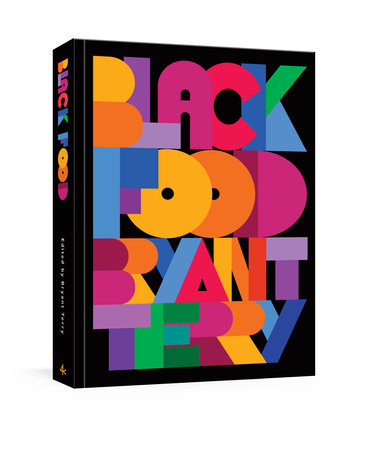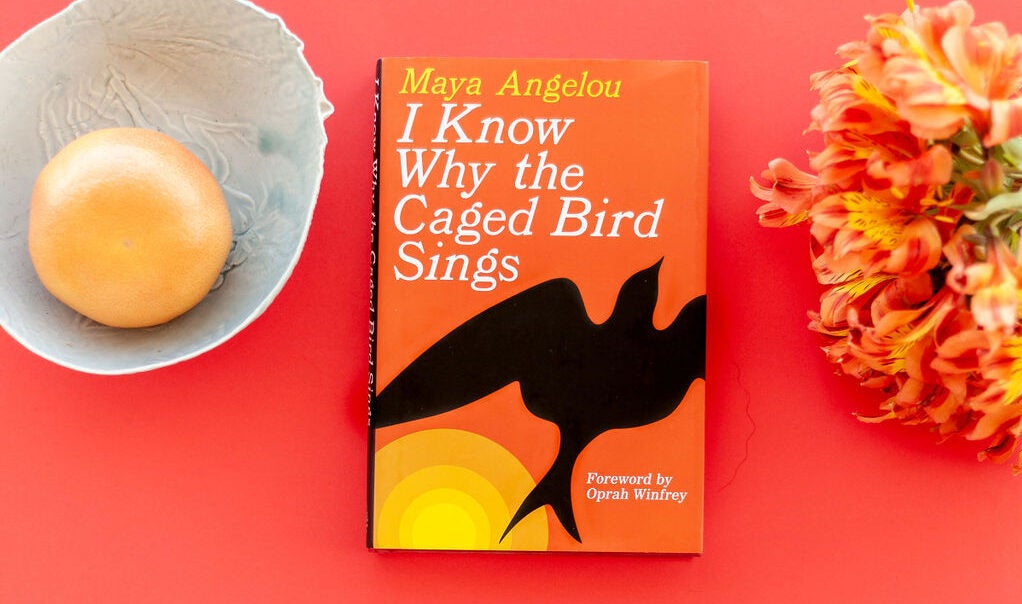Introduction“Sometimes we are blessed with being able to choose the time, and the arena, and the manner of our revolution, but more usually we must do battle where we are standing.” —Audre Lorde
Black Food is a communal shrine to the shared culinary histories of the African diaspora. These pages offer up gratitude to the great chain of Black lives, and to all the sustaining ingredients and nourishing traditions they carried and remembered, through time and space, to deliver their kin into the future. Every one of us who came together to make this book invoked sacred energies to support the creation of a beautiful, delicious, and thought-provoking compendium. We pray that this collection facilitates reflection on and veneration of our sacred foodways.
Recipes are the through line of
Black Food. Without being overly prescriptive, I asked brilliant colleagues to offer dishes that embody their approach to cooking and draw on history and memory while looking forward. I encourage you to make many recipes in this book and create space for meaningful, visceral experiences. Trust me, the food will provide more sustenance, more nourishment, more health, more pleasure, and more life. But that’s not all.
Black Food also includes moving visual art, thought-provoking essays, and imaginative poetry that will encourage spiritual and intellectual exploration, renewal, and growth.
We seek, in these pages, to promote a concept of food that embraces courage, commitment, and self-discovery, and ultimately moves each and all of us to a better place. In my graduate school advisor Robin D.G. Kelley’s 1994 essay collection
Imagining Home: Class, Culture, and Nationalism in the African Diaspora, I discovered a profound rumination by the late South African scholar-activist Bernard Magubane. Diasporic consciousness arose from “a determined effort on the part of Black people to rediscover their shrines from the wreckage of history.” In this book—this altar—we lay out, and lay on it, the collective weight, the push of experiences and traditions of the African diaspora, the movement of Black bodies and Black food far and wide, from pre-Columbian voyages out of Africa to the violent dislocations of the trans-Atlantic slave trade and colonialism.
This collection also urges us to
stop and dive deeply into the politics of pleasure, of rest—as in Tricia Hersey’s concept of the Nap Ministry and R&R as resistance—and of Black leisure, whether stretching out to chill and sip “beautiful” drinks in the afternoon at Oakland’s Red Bay Coffee or strolling through Paris all evening with nowhere specific to be, brushing dirt off one’s shoulder like the flyest flâneur. We subscribe to the philosophies of Toni Morrison, a joyful warrior wielding her quill and freedom dreaming, insisting we shut out the nightmarish distractions of racism. We let Morrison show us how, with a fresh pair of eyes, we can perceive a world full of love, light, peace, pleasure, and rewards previously denied. We are grateful for Sarah Ladipo Manyika’s remembrance, “Jollofing with Toni Morrison,” and for Penguin Random House editor Porscha Burke’s wealth of wisdom and experience, whether in guiding the 35th anniversary reissue of Morrison’s groundbreaking
Black Book (a major inspiration for the volume before you) or the reissue of
The Autobiography of Malcolm X. In our “Black, Queer, Food” chapter, we are fortunate to witness the most profound dialogue by and about our diaspora’s most marginalized, and most resilient and brilliant, community: Ebony Derr, Lazarus Lynch, Zoe Adjonyoh, and Leigh Gaymon-Jones lead us in a timely conversation about how LGBTQ activism is the vanguard of creating vibrant culture, love, and kinship out of disruption and rejection. Crucial to us thriving is creating the broadest table, with seats reserved for
all of our people throughout the diaspora. Like the Black men depicted in Kerry James Marshall’s
Garden Project—a series of large-scale paintings set in Chicago’s South Side—we should all weed, rake, and dig deeply to uproot attitudes and habits that marginalize, reject, or erase any of us.
The many mansions of Black food have always had—and will always have—room for everyone. As our clear-sighted Black liberation activist Anna Julia Cooper insisted, each soul can and should decide when and where they enter into this rich tradition. Our aim in
Black Food is to maintain this practice of openness, to encourage the sharing of these journeys and discoveries across the diaspora at large.
Black Food is rich with points of connection, in which the reader can engage with and perhaps more deeply appreciate the many-colored threads in this diasporic epic of Black exodus and redemption.
Each chapter and verse, each poem, photograph, painting, think-piece, and recipe is a portal to beloved communities of plants and animals, food and pleasures, leisures, tastes, and cultures across many eras. Learn how to make sacred spaces suited to your own home and kitchen, at your own pace of growth. Perhaps you will begin with something simple and soothing like Krystal Mack’s update on traditional Yoruba okra baths. Or you may be drawn to more elaborate practices, as with Latham Thomas’s and Jocelyn Jackson’s guidelines for intentional ritual creation, altar making, and seed weaving.
Black Food is an offering in which the contributors, whether chefs, artists, activists, scholars, journalists, or poets, seek to honor a pantheon of revered ancestors: we deify Octavia Butler in “Caring for the Whole Through This Black Body,” adrienne maree brown’s introduction to our chapter on Radical Self-Care. Audre Lorde’s life and legacy are writ large across that chapter’s focus on defining, nurturing, and defending one’s self, as are other spiritual forebears like bell hooks and Cedric Robinson. We stand on iconic shoulders, like those of Black liberation theologians Reverends James H. Cone and Albert Cleage, in our chapter on Spirituality. Intellectual titans like W.E.B. Du Bois inform deeply personal reflections like “Beyond the Tree Line,” Rashad Frazier’s return to his native North Carolina’s rural spaces, disrupting the racist histories of color-lines.
With Thérèse Nelson and Rahanna Bisseret Martinez, we give thanks to visionaries like Lena Richard and Vertamae Smart-Grosvenor, whose prescient critiques of the US evolution from domestic food work to professional kitchens help us find footing for Black creativity and entrepreneurship in a booming food media landscape. With Tracye McQuirter and Fred Opie, we cherish Dick Gregory, who, in the tradition of prophetic truth-tellers like Elijah Muhammad, Peter Tosh, Coretta Scott King, and KRS-One, aggressively rejected the toxic food traditions of slavery, colonialism, and industrialized food systems.
In “Land, Liberation & Food Justice” and “Black Women, Food & Power,” inspired by the ingenuity of celebrated grassroots organizers like Fannie Lou Hamer and Georgia Gilmore, our contributors Monica White, Charlene Carruthers, and Psyche Williams-Forson explore how Black folk fought for life and liberty by leveraging fecund land and delicious food. In the names of these ancestors we claim and reclaim radical models of food, health, and wellness for Black communities, revolutionary not only in their newness, but also in their rootedness in ancient African traditions.
This book is a Sankofa bird, standing astride the crossroads of past and present, with a neck craning back to what came before, measuring our progress. Its feet point toward what is to come, with an egg signifying the future held protectively in her beak. To paraphrase Zora Neale Hurston, the present is an egg laid by the past that has the future inside of its shell.
Black Food represents a bridge from our ties to traditions in the Motherland to our wildest dreams that will manifest in the future.
Black Food is meant to live alongside you not only on coffee tables, credenzas, and night stands. Toss it in your bag, satchel, purse, or on the passenger seat, and ride out to your local farmers’ market and grocery store. Level-up your skills with practical cooking know-how shared by our brilliant chefs. Expand your African diasporic cooking repertoire and impress your family and friends. Pass it around at cookouts, barbecues, and family reunions. Like Black people, this book contains multitudes.
Copyright © 2021 by Edited by Bryant Terry. All rights reserved. No part of this excerpt may be reproduced or reprinted without permission in writing from the publisher.











